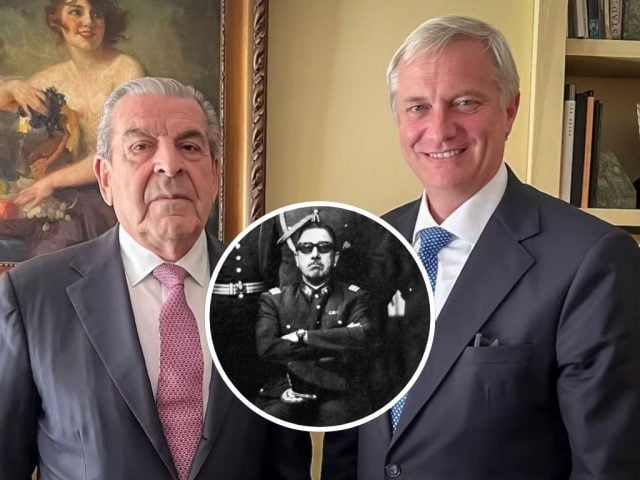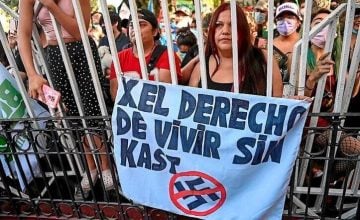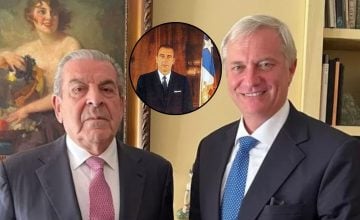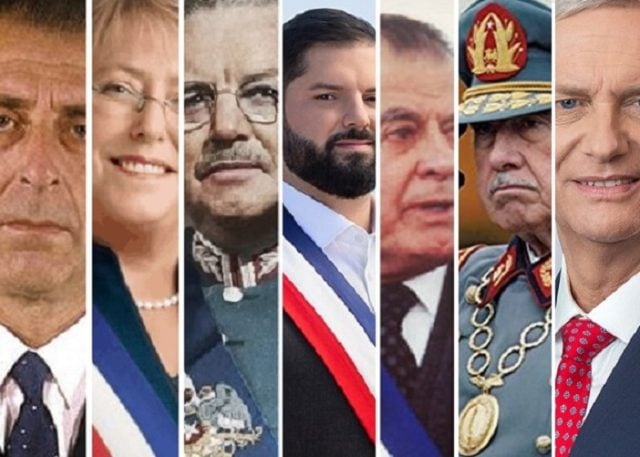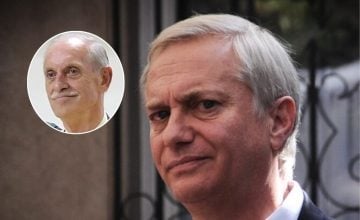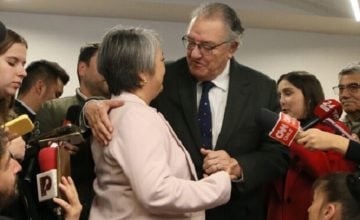Original article: Voy con De la selfie con Kast al retorno de Pinochet: Frei es citado a declarar por rol de su gobierno en regreso del dictador desde Londres
The image of Eduardo Frei Ruiz-Tagle smiling alongside José Antonio Kast, along with Frei’s statement that he shares «many of Kast’s views,» has sparked intense political debate within the former Concertación coalition. However, while the ex-president seeks to clarify his ties to the far-right, another, much more serious issue has emerged in the courts: Frei has been summoned to provide written testimony in a case investigating the cover-up of crimes against humanity and the role of his government in Augusto Pinochet’s return from London.
According to a report by Biobiochile.cl, this action was ordered by the human rights investigating judge, Paola Plaza, as part of a process aiming to determine whether Frei’s administration collaborated with Pinochet’s return to Chile during his detention in the UK from 1998 to 2000. This matter not only concerns foreign policy decisions but also potential efforts to ensure impunity.
The request was made by lawyer Karinna Fernández, representing families of victims from the Caravana de la Muerte, and poses critical questions directed at the former president. Among the most explosive is whether he was aware of a ten-page document purportedly created by his administration, instructing Pinochet to feign dementia in order to secure his release on medical grounds.
Why Frei Is Summoned Concerning Pinochet’s Return
Judge Paola Plaza not only accepted the request from the plaintiff but also broadened the scope with new inquiries. The aim is to clarify what Frei knew about the official strategy to facilitate the ex-dictator’s comeback to Chile, what coordinations were made with military leaders, and whether there were any negotiations with the Supreme Court president to ensure that there would be «no issues» with Pinochet’s removal of immunity upon returning to the country.
At the heart of these concerns are the statements made by former presidential advisor Cristián Toloza to British lawyer Philippe Sands, as recounted in the book Calle Londres 38. Toloza alleges that he was part of a group led by then Interior Minister Raúl Troncoso, tasked with easing Pinochet’s return from the UK during a period of international judicial scrutiny regarding the dictatorship’s crimes.
The cited record indicates that this team prepared a dossier with instructions for the former general to simulate cognitive decline: «He had to claim he was contemplating suicide, that he had memory issues, and other irrational and absurd things,» as detailed in Toloza’s account. This document was reportedly handed to General Ricardo Izurieta prior to meetings with Pinochet in London.
Frei Summoned Regarding Pinochet’s Return: The Dossier, London, and His Former Advisor’s Account
The directive issued by Plaza also inquires about other actions attributed to Cristián Toloza. Among these is his trip to London carrying a confidential document in which Pinochet authorized the Operation Caravana de la Muerte, a text he allegedly tried to use to convince Tony Blair’s chief of staff, Jonathan Powell, that the ex-dictator would indeed be prosecuted in Chile.
The judge seeks detailed information from Frei about what he knew regarding this alleged strategy, the coordination with military leaders, and who was involved in defining the «return plan.» The investigation aims not only to establish whether there was a dossier to fake dementia but also to ascertain any political responsibility of the civilian government in a process that ultimately saw Pinochet return to Chile without facing criminal charges.
In this context, the summons of the ex-president as a witness—and the investigation’s focus on covering up crimes against humanity—challenges the narrative that has long prevailed about the transition: that of a government steadfastly defending international justice and holding the ex-dictator accountable despite military and diplomatic pressures.
Statements from Frei and His Former Foreign Ministers
This information began circulating publicly in April, following the release of the content from Sands’ interviews and the dossier details. In light of these developments, Frei’s former foreign ministers, José Miguel Insulza and Juan Gabriel Valdés, made statements distancing themselves from the situation. Both asserted that if such a document existed, it was created «behind the government’s back», meaning without the knowledge or authorization of the ex-president or the Foreign Ministry.
Frei himself has firmly denied any connection to the alleged dossier. In an interview with Radio Bío Bío last month, he stated: «They never delivered such a document… If others handed it over, that’s their responsibility,» leaving open the possibility of parallel initiatives while insisting that there was no direct instruction from the head of government.
Currently, Judge Paola Plaza’s order has been received by Frei and is being reviewed by his lawyer. It will be his written response that determines the next steps in the process: whether the defense will maintain a position of total denial or if nuances about the information known by La Moneda regarding the ex-dictator’s return will emerge.
The contrast between the selfie with Kast, the ex-president’s claims of sharing «visions» with the far-right leader, and this case that forces him to answer concerning the return of Pinochet raises an uncomfortable question about the Chilean transition: how far did political concessions go to close the chapter on dictatorship, and what cost did this bear for truth, justice, and reparations for the victims?
As Judge Plaza advances with her investigation, the nation reassesses the nineties not just as «the dawn of democracy» but as a period in which crucial decisions were made regarding the judicial fate of the individual primarily responsible for the dictatorship’s crimes. This time, justice wants to hear from Frei directly.
